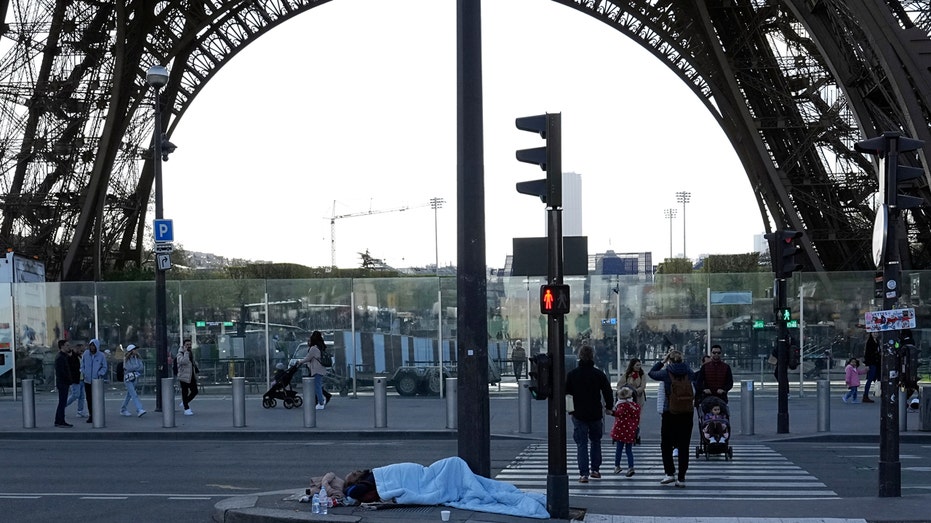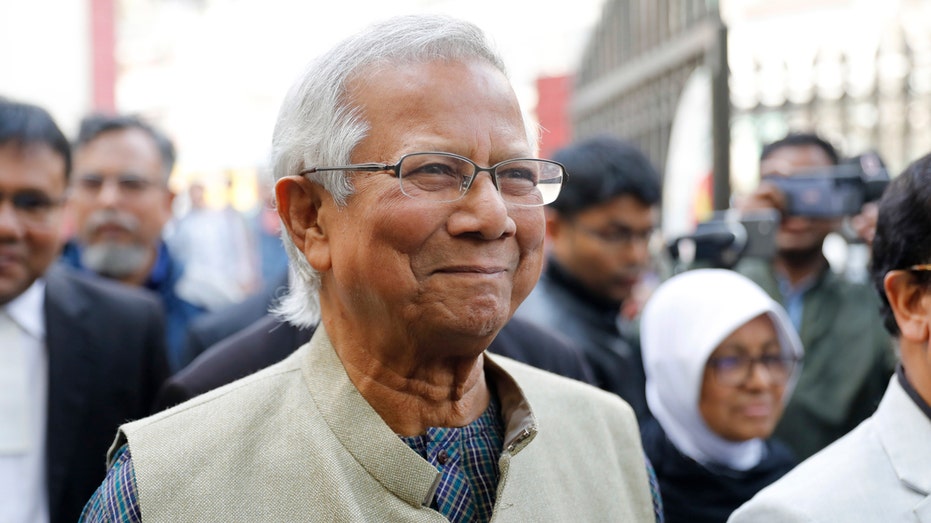French police evict hundreds from abandoned Paris warehouse ahead of Olympics
Ahead of the upcoming Paris Olympic Games, French police on Wednesday carried out a large-scale eviction at the country's biggest squat which had become home to around 450 migrants.

PARIS (AP) — With the Paris Olympic Games 100 days away, police carried out a large-scale eviction at France's biggest squat in the south of the country's capital. Authorities, including dozens of gendarmes, cleared out the makeshift camp at an abandoned bus company headquarters in Vitry-sur-Seine on Wednesday.
The camp had become home to about 450 migrants, with images of the eviction spreading rapidly across social media.
DESPITE SECURITY RISKS, PLANS TO OPEN PARIS OLYMPICS ON RIVER SEINE REMAIN UNCHANGED AND ON TRACK
Aid workers are concerned that the broader effort by Paris authorities to clear out migrants and other people sleeping rough in the city before the summer Olympics is troubling, as those evicted are not provided longer-term housing assistance.
"The squat was the biggest in France. It doubled in size in one year because of the Olympics. Last year, authorities cleared out migrants from nearby the Olympic Village, and many displaced people came here," said Paul Alauzy of the humanitarian organization Médecins du Monde, who has been closely following the steady pace of evictions over two years.
The conditions inside the warehouse were cramped, Alauzy said.
The clearance operation will continue over several days. The site is empty: 150 people left the night before the police arrived, while 300 were evicted before 8 a.m. on Wednesday morning. Among the 450 were 20 children and 50 women, the aid group said.
This action is part of a broader push by local authorities to dismantle makeshift camps as the city prepares to host the Olympics from July 26 to August 11.
Advocacy groups working with the homeless and other vulnerable populations have been voicing their concerns for months. They have been particularly vocal about the accelerated pace of camp clearances as the Games approach, warning of the dire consequences for those who find themselves without shelter.
On Wednesday, observers said some five buses were at the site, intended to transport migrants to specially allocated sites in cities such as Orleans or Bordeaux, or in the wider Paris region, Ile-de-France. Other migrants will be bused to temporary filtering sites.
Alauzy said he fears that "it will just be a matter of days or weeks for many of the migrants to be sleeping rough on the street again."
Umbrella association Revers de la Medaille, French for The Medal’s Other Side, which underscores the harmful effects of the Games on the most precarious populations, said it did "not know where families with school-going children were sent to."
The fate of these displaced individuals remains a pressing issue as the city gears up for its time in the global spotlight, highlighting the tension between urban beautification efforts and support for marginalized communities.
Earlier this month, French police removed about 50 migrants, including families with young children, from the forecourt of Paris City Hall. The migrants packed their belongings and boarded a bus to temporary government housing in the town of Besançon in eastern France.
Responding to a question about Wednesday's evacuation, French Sports Minister Amelie Oudea-Castera said she wanted "to emphasize is that it has nothing to do with the Olympics."
"These policies, they were implemented before the Games, they will be implemented after the Games," she said. "And we want to handle those difficult situations with the best possible humanity. This is why we work with the aid groups. We really want to make things as fair as they can be."
What's Your Reaction?
















